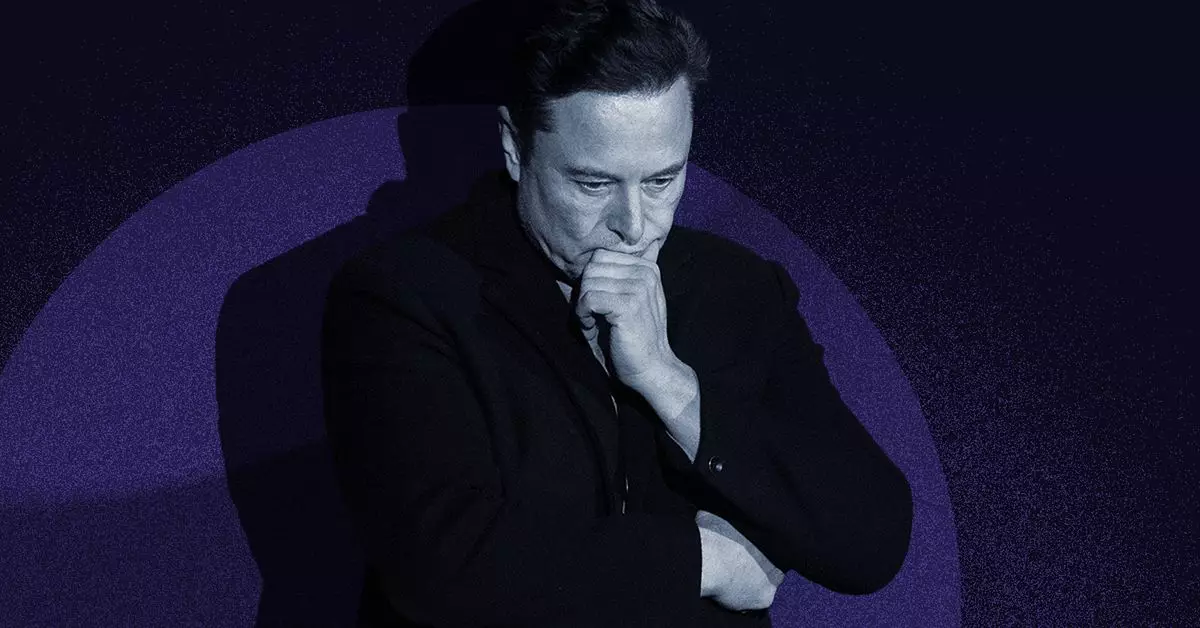Elon Musk’s endeavors often stir debate, and his latest venture as co-lead of the now-defunct Department of Government Efficiency (DOGE) has attracted significant attention. In this role, Musk has begun to openly criticize federal employees, spotlighting positions he perceives as unnecessary, thereby leveraging his vast online following to amplify his voice. This tactic has raised questions about the fine line between legitimate scrutiny and online harassment, showcasing how social media platforms can be weaponized in public discourse.
Recent developments reveal that Musk amplified a particular critical post regarding Ashley Thomas, a director at the US International Development Finance Corporation, suggesting that her job was an example of wasteful government spending. He lambasted the current employment practices by asserting, “so many fake jobs,” an opinion which has resonated with his followers, generating a substantial wave of backlash against Thomas. This incident illuminates an unsettling trend: individuals previously shielded by the structure of government employment are now subject to public ridicule and harassment, creating an atmosphere of fear and intimidation.
The repercussions of Musk’s posts have been profound. With millions of impressions, the incident catalyzed a barrage of memes and vitriol aimed at Thomas, forcing her to take her social media accounts private. This reaction is not an isolated incident but rather part of a broader pattern Musk is known for: utilizing his massive platform to launch personal attacks under the guise of advocating for free speech. The consequences for those targeted can be severe, provoking discussions about mental health and the broader implications of public shaming in the digital age.
The Public and Private Interplay in Governance
In tandem with Musk’s actions, the president of the American Federation of Government Employees, Everett Kelley, has criticized such tactics, categorizing them as efforts to instill fear among federal workers. The environment Musk has fostered poses significant ethical dilemmas regarding accountability and transparency in government processes. With public scrutiny now often influenced by the whims of high-profile personalities, the integrity of civil servants hangs precariously, impacted by a relentless pursuit of ‘efficiency’ as defined by Musk.
Long-Term Implications for Civic Engagement
Musk’s and DOGE co-lead Vivek Ramaswamy’s commitment to transacting much of their work in public poses an alarming prospect. It raises crucial concerns about the future of civic engagement and effectiveness within government institutions. While aiming for efficiency is admirable, the methodology employed demonstrates a disregard for established norms that protect public employees. As public servants are vilified on social media, the inherent risk is that talented individuals may shy away from government service altogether, fearing scrutiny and harassment rather than seeking to serve the public interest.
As we navigate this new reality where social media influences public opinion and governance, it becomes critical to reassess what accountability should look like. Facilitating a constructive dialogue about government efficiency and employment practices is vital, but it should not come at the expense of individual dignity and safety. While figures like Musk play a significant role in shaping narratives, the overarching challenge remains: how to balance free speech with the need for respectful discourse, ensuring that the pursuit of efficiency does not devolve into a culture of fear and harassment.

